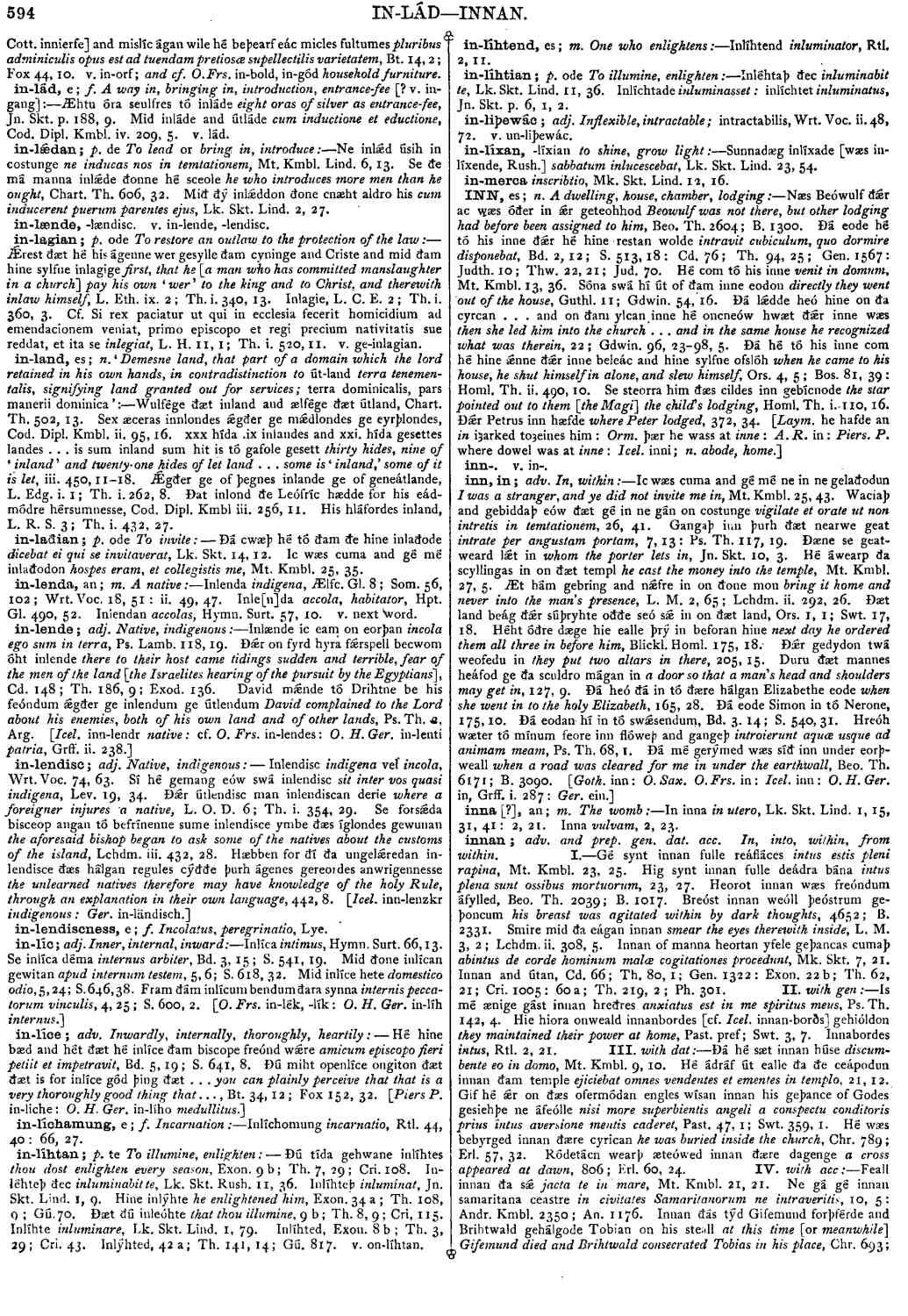INN
- noun [ neuter ]
-
Næs Beówulf ðǽr ac wæs óðer in ǽr geteohhod
Beowulf was not there, but other lodging had before been assigned to him,
- Beo. Th. 2604 ;
- B. 1300.
-
Ðá eode hé tó his inne ðǽr hé hine restan wolde
intravit cubiculum, quo dormire disponebat,
- Bd. 2, 12 ;
- S. 513, 18 :
- Cd. 76 ;
- Th. 94, 25 ;
- Gen. 1567 :
- Judth. 10 ;
- Thw. 22, 21 ;
- Jud. 70 .
-
Hé com tó his inne
venit in domum,
- Mt. Kmbl. 13, 36 .
-
Sóna swá hí út of ðam inne eodon
directly they went out of the house,
- Guthl. 11 ;
- Gdwin. 54, 16 .
-
Ðá lǽdde heó hine on ða cyrcan . . . and on ðam ylcan inne hé oncneów hwæt ðǽr inne wæs
then she led him into the church . . . and in the same house he recognized what was therein,
- 22 ;
- Gdwin. 96, 23-98. 5 .
-
Ðá hé tó his inne com hé hine ǽnne ðǽr inne beleác and hine sylfne ofslóh
when he came to his house, he shut himself in alone, and slew himself,
- Ors. 4, 5 ;
- Bos. 81, 39 :
- Homl. Th. ii. 490, 10 .
-
Se steorra him ðæs cildes inn gebícnode
the star pointed out to them [the Magi] the child's lodging,
- Homl. Th. i. 110, 16 .
-
Ðǽr Petrus inn hæfde
where Peter lodged,
- 372, 34.
Bosworth, Joseph. “INN.” In An Anglo-Saxon Dictionary Online, edited by Thomas Northcote Toller, Christ Sean, and Ondřej Tichy. Prague: Faculty of Arts, Charles University, 2014. https://bosworthtoller.com/20635.
Checked: 1